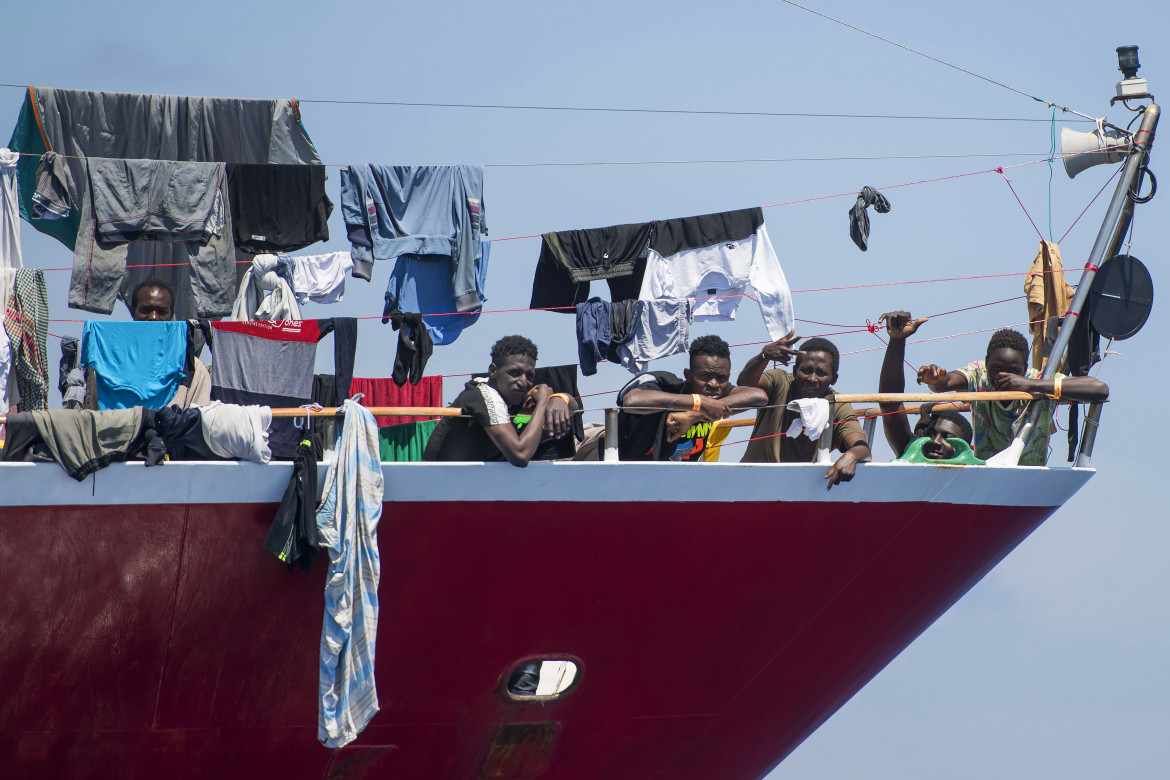Analysis
Amnesty condemns Malta for abuse and impunity in the Mediterranean
The report released Tuesday documents numerous incidents this year that reveal Malta to be systematically and illegally fighting against migratory flows.

Twelve people might still be alive today if they had not been abandoned for six days at sea.
They were traveling with 51 other human beings on a boat that left Libya on April 9. They had reached the Maltese search and rescue area, but no assistance came until April 15, when they were illegally taken back to Tripoli on a Libyan fishing boat that was anchored in Malta, in a scandal that became known as the “Easter Monday pushback.” When that vessel arrived on the North African coast, five of the migrants it was carrying were dead. According to the survivors, who were then locked up in detention centers, another seven were lost at sea, after some tried to swim to a Portuguese ship nearby, the Ivan.
This episode, already denounced by journalistic investigations and Alarm Phone (AP), is the most serious of those collected in the “Malta: Waves of Impunity” report, published Tuesday by Amnesty International. However, it is not the only one. On the contrary, the report describes a well-structured and complex system of fighting against migratory flows.
In the first six months of 2020, Amnesty has recorded four types of events involving violations of the rights of refugees and migrants. In addition to the one already mentioned, there were the rejections of March 14, involving 49 and 110 people. And then, there were the episodes in which Malta denied aid and directed the boats towards Italy. The Ragusa Prosecutor’s Office has opened an investigation into the case of 101 survivors who left Libya between April 9 and 10 and arrived in Pozzallo on the 12th.
Videos show the Maltese armed forces pointing them in the direction in which they needed to travel, and even refueling them and changing their engine. The coast visible in the background makes it highly likely that the episode took place in Maltese territorial waters.
Finally, the fourth episode that violated migrants’ rights was the detention of 425 people from April 30 to June 6 on four ships anchored 13 miles off the island. The official reason was a (prolonged) quarantine, but Amnesty argues it was a form of detention.
Between January 1 and August 31, 2,161 migrants landed in Malta, a limited but “considerable” number for a country with a population of less than 500,000 inhabitants (in the same period, 19,194 arrived in Italy, which is almost nine times as many for 120 times more inhabitants). Accordingly, the Amnesty report underlines the European responsibilities, and particularly the urgent need to set up an automatic system of redistribution of migrants.
“The absence of such a mechanism, however, does not relieve Malta of the responsibility to indicate a place of safety for the disembarkation of people rescued under its coordination”—such as the 27 shipwrecked people who have been on board the tanker Etienne for 35 days, and on which the government of Valletta seems to be conducting an experiment to test their strength. Although the conditions on board have deteriorated, despite the appeals from UNCHR, IOM, ICS and the European Commission, the ship is still prevented from landing.
The vessel Etienne rescued the shipwrecked on August 4. They had been sighted by the Moonbird plane, belonging to Sea-Watch and the Humanitarian Pilots Initiative. On Tuesday, the two NGOs reported that since Friday, the aircraft has been banned from taking off from Lampedusa, a ban issued by the Italian National Civil Aviation Authority (ENAC) on the recommendation of the Interior Ministry.
The accusation is that it conducted “very intense flight activity” which represents “unauthorized and uncoordinated search and rescue.” After the ships stuck in port for having rescued too many, now it’s the turn of planes to be grounded because they bear uncomfortable witness.
“The Moonbird does not carry out search and rescue activities, but an intense and important activity of monitoring human rights in a stretch of the sea where they are violated daily,” Sea-Watch stressed.
Originally published at https://ilmanifesto.it/amnesty-accusa-malta-nel-mediterraneo-abusi-e-illegalita/ on 2020-09-09
